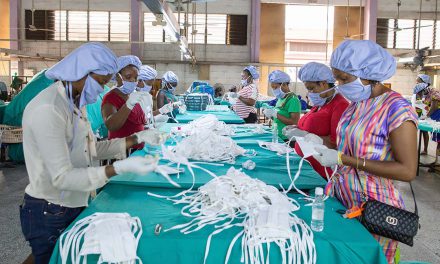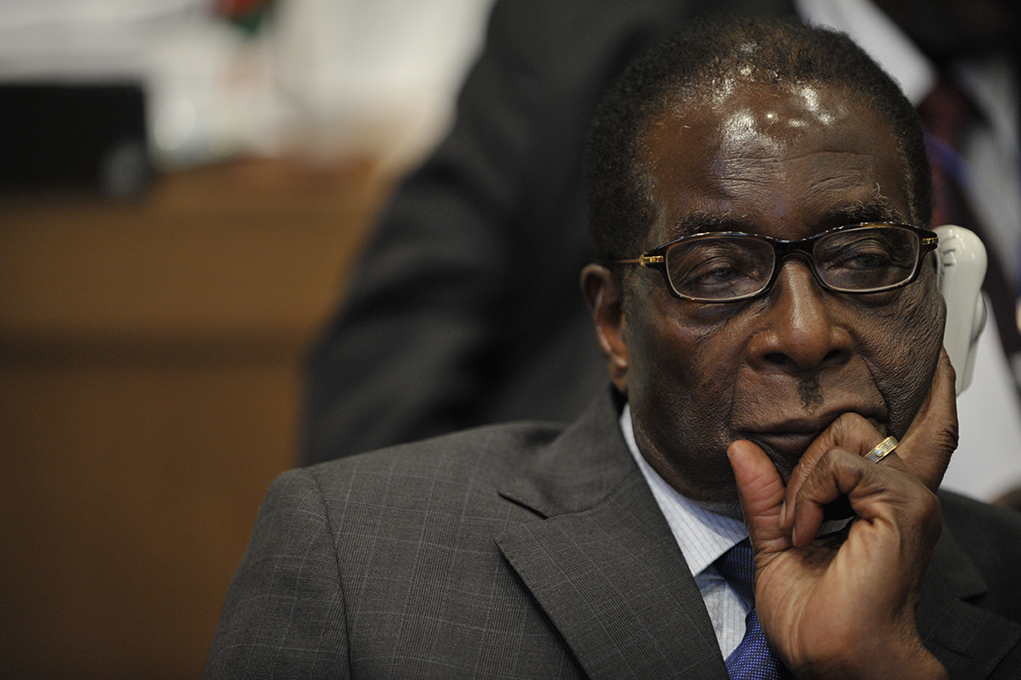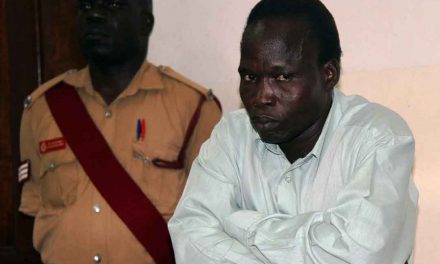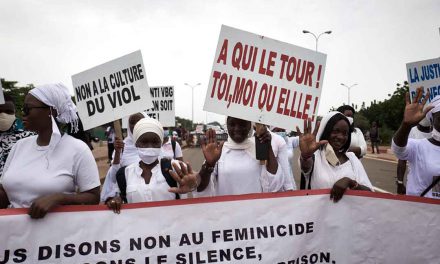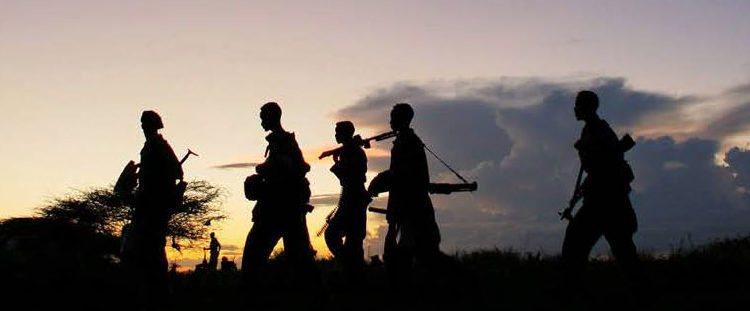
Somali National Army Soldiers near Afgooye, west of Mogadishu © Stuart Price/UN Photo
Inconsistent funding partners’ uncoordinated missions and lagging member states hinder the AU’s counter-terrorism measures
Continuous bloodletting by extremist groups in Africa in recent years has brought into question the African Union’s (AU) capability and willingness to combat terrorism on the continent. Late in 2016, attacks such as those conducted by militant Islamist group Ansar Dine on United Nations (UN) forces in Northern Mali in October, and Al-Shabaab’s mortar attacks on an African Union Mission to Somalia base only a few days later, further undermined the organisation’s credibility.
In recent decades, the AU and its predecessor, the Organisation of African Unity (OAU) have formulated several legal counter-terrorism frameworks, including the 1999 Algiers Convention and the AU Plan of Action on the Prevention and Combating of Terrorism. The Algiers Convention — adopted in September 2002, and coming into effect in December of that year after 30 states had ratified it — required African states to align criminal legislation with international law, to achieve inter-agency cooperation at the national level, and to improve cross-border policing and surveillance. It also required member states not to provide any type of support to terrorist groups.
In the wake of the 9/11 attacks in New York, which highlighted the reality of international terrorism, the newly formed AU set out to align itself with the global fight against terror, with a particular focus on Africa. The AU’s plan of action called on member states to ratify and implement the Algiers Convention. It proposed a range of counter-terrorism measures, including the requirement that states introduce legislation preventing the financing of terrorism and that they improve interstate exchange of information on terrorism, as well as requirements regarding member states’ police and border controls.
In July 2004, the AU adopted the Protocol of the Algiers Convention, which recognised the “linkages between terrorism and mercenarism, weapons of mass destruction, drug trafficking, corruption, transnational organised crimes, money laundering, and the illicit proliferation of small arms” as increasing prevalent risks associated with terrorism. The purpose of this protocol was to rectify a significant weakness of the OAU Convention: it did not include implementation mechanisms. The plan also called for the establishment of an AU Peace and Security Council (PSC) to “harmonise and coordinate continental efforts in the prevention and combating of terrorism”. The PSC adopted its rules of procedure in March 2004 and sat for its inaugural meeting one day later, marking the beginning of its operations. The PSC was launched at the heads of state and government level on 25 May, 2004, in Addis Ababa.
Though formally adopted in 2004, the Protocol entered into force only in February 2014. The long delay was mainly due to difficulties in getting the required 15 countries to ratify it. Even so, some African states that urgently need to address terrorism — such as Kenya, Nigeria, Somalia, Mauritania and Chad — have also not ratified it.
The African Centre for the Study and Research of Terrorism (ACSRT) was established in September 2002 as part of the council, to research all aspects of terrorism. It would also assist to develop counter-terrorism capacity-building programmes, as well as provide advice on combating terrorism to member states. No overview of the ACSRT’s output is currently available, but at its 7th Annual Focal Points Meeting in December 2013, the organisation outlined its plans for the following four years, after having appeared to recognise that its output had been meagre. The plan comprises four “pillars”, namely: “enhancing information sharing and dissemination through the ACSRT CT-Situation- Room and the CT Early Warning System”; augmenting its rate of publication while improving its research quality; implementing national and regional capacity-building programmes; and improving cooperation with its regional and international partners.
In addition, in its efforts to strengthen counter-terrorism measures in Africa in accordance with the relevant regional and international mechanisms, the AU has developed the African Model Anti-Terrorism Law. The law is intended to serve as a comprehensive legal instrument that member states can adopt to “strengthen their criminal justice system and effectively prevent and combat terrorism”. It has been disseminated among member states since at least 2011, but only three — Ghana, Mauritius and Burkina Faso — have asked the AU for assistance in including it in their national legislation.
Critics say that the AU has been slow to implement the Algiers Convention and other counter-terrorism mechanisms. A major reason for this is the sheer difficulty the AU has encountered in persuading member states to ratify the Convention. Even after much urging and pleading, only 41 member states have ratified it. Similarly, it has taken more than a decade for the 2004 Protocol to enter into effect, and so far only 17 countries have ratified it. The AU has also faced a major challenge in the way its counter-terrorism efforts have been eclipsed by the actions of the United States (US), Britain, France and the United Nations. Examples include the US Pan Sahel Initiative (PSI) in 2002 to assist Mali, Mauritania, Niger and Chad in their fight against terrorism. In 2008, the PSI was incorporated into the US Africa Command, which, according to former US president George W. Bush, was established “to enhance efforts to bring peace and security to the people of Africa and promote our common goals of development, health, education, democracy, and economic growth in Africa”.
France’s Operation Serval was mandated by a UN resolution and initiated in 2012 at Mali’s request in its fight against Islamist extremists. It was replaced by Operation Barkhane in 2014, with Burkina Faso, Chad, Mali, Mauritania and Niger (all former French colonies), to combat terrorism in the Sahel.
At least part of this situation is because the AU still lacks a system for monitoring states’ implementation measures even if they do ratify the 2004 Protocol. Its lack of funds, resources and technical knowledge remain serious impediments to its ability to fully implement its own counter-terrorism strategies. This leads the AU to rely on the UN and some Western countries, but it has received little assistance from them. Instead of collaborating with the AU, these powers prefer working directly with the member states, as with the US establishing the PSI.
The AU’s financial problems are exacerbated by some member states failing to pay their dues. According to Leslie Connolly, a former senior programme officer at ACCORD, a South African conflict resolution organisation, only 40% of the AU’s $416 million budget for 2016 was funded by AU member states’ contributions. Of that, a mere $5,3 million goes towards AU programmes, while some 96% funds operational costs. International donors also often fail to meet their obligations.
As we have seen, the AU has made some progress in its efforts to formulate continental counter-terrorism frameworks. However it must implement its frameworks in specific, concrete ways. For its part, the international community needs to work with the AU rather than focusing on supporting individual countries in their battle against terrorism. Rather than taking the lead role in their operations, France and the US should assume a supporting role to the AU. For their part, African member states must also provide more consistent financial and political support to the AU to create an effective counter-terrorism capacity across the continent.


